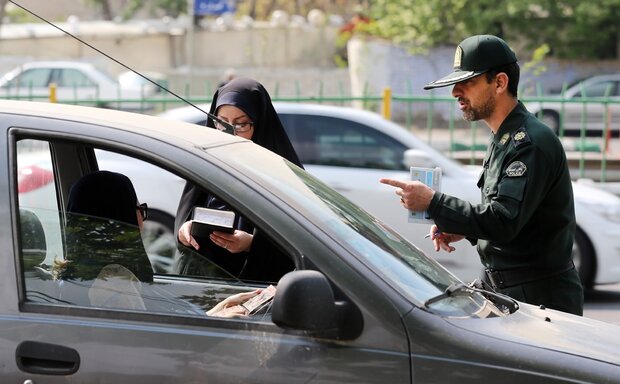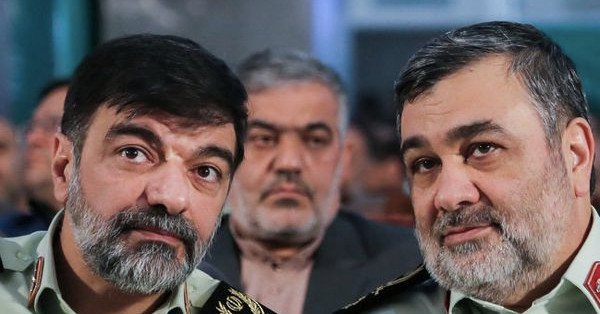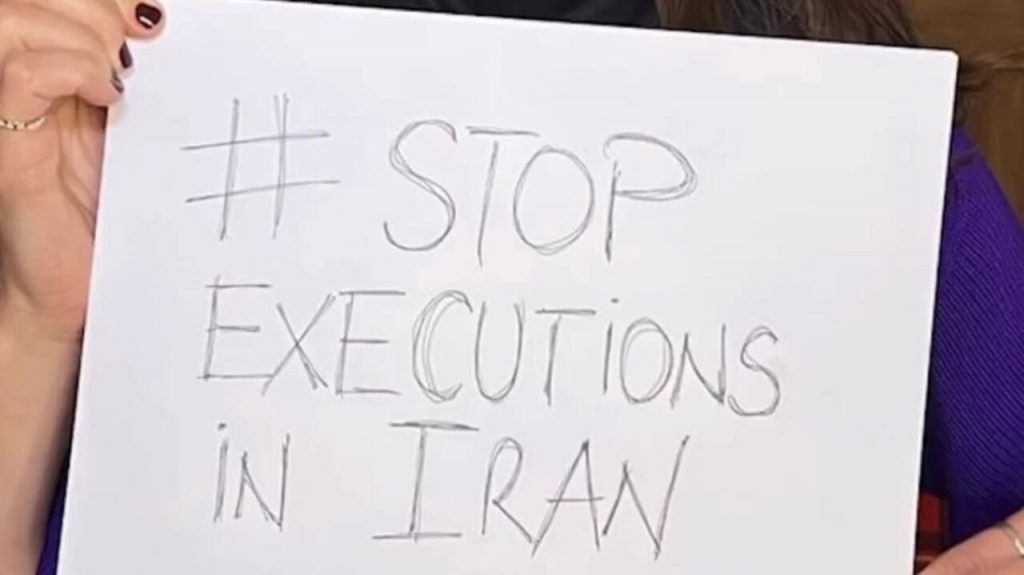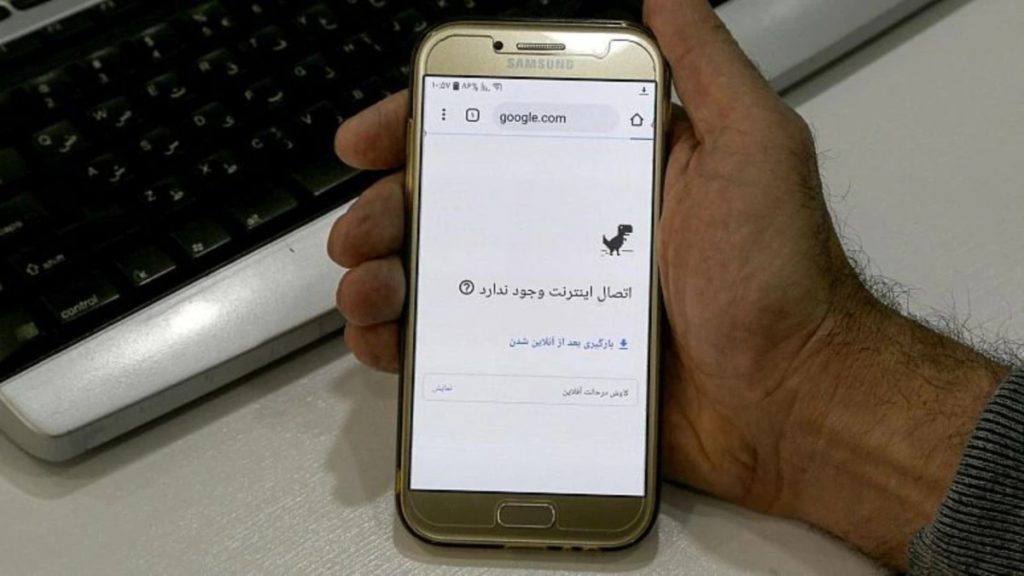
Overlooking People’s Problems
The editorial of Arman Emrooz asserts that resolving people’s problems is not a priority for Iranian officials who are not sufficiently knowledgeable or competent for the positions they hold.
The Iranian people are patient, but in recent years, they have faced a lot of difficulties due to the dire circumstances facing the country. These circumstances which have preoccupied people can change and improve with proper measures and management. The problems that exist in society can be resolved if Iranian officials put comprehensive plans on their agenda.
The Iranian government pays no attention to people’s problems, which creates widespread public distrust. It is unacceptable to the Iranian people that officials are indifferent toward the existing problems and do not seek to resolve people’s problems and issues. If these problems are resolved, they will no longer preoccupy the Iranian people.
But a certain group of officials who have no expertise prefer to deal with politically motivated issues on their agenda instead of paving the way for people’s welfare and comfort. Moreover, it must be noted that one of the causes of the current chaos and disarray in the country is the fact that Iranian officials lack the necessary expertise and knowledge for their positions.
Incompetent officials cannot have a positive impact on the current issues while they cannot logically respond to criticism. As a result, those who are in charge of affairs in Iran have no knowledge of the fields they are managing. Under these circumstances, can one hope for improvement? The answer is of course negative.
The other costly issue is that Iranian officials do not want to accept that they are incompetent and doing a terrible job. So, they do not listen to others’ viewpoints and even dismiss any criticism as attempts to sabotage the government’s efforts.
If the decisionmakers in Iran come to the realization that they should use competent and skilled managers and consider criticism as constructive, they will try to understand others’ views in order to improve their performance.
Although people are facing new challenges every day and are losing hope, Iranian officials double down on calling their methods the best. But they must know that the continuation of the current situation will only make the situation worse.
Diminishing Relationship Between the Government and the Parliament
The editorial of Arman Emrooz asserts that as we get closer to the parliamentary elections in Iran, lawmakers will be more critical of Ebrahim Raisi’s government to please their own constituents and gain their votes.
One of the winning cards of Raisi’s government was its close relationship with the Iranian Parliament while lawmakers were proud of their support for the government. But as we get closer to the next round of parliamentary elections, lawmakers will start following up their constituents’ demands more seriously and will try to hold more members of Raisi’s cabinet accountable.
It must be emphasized that the current Parliament is not effective, and most lawmakers are not qualified. The other issue with the current Parliament is the lack of any majority which means that there is no faction whose decisions are enforceable. As such, the Parliament cannot take any essential measures.
The effectiveness of any regime depends directly on the competence and expertise of the three branches: the legislature , the judiciary and the executive. But what is obvious now is the weakness of the government and the Parliament. Probably, one fifth of current lawmakers will make it to the next Parliament, and they themselves know it as well. So, instead of dealing with people’s problems, they are focusing on their own propaganda to win the upcoming parliamentary elections.
Lawmakers’ re-election efforts are obviously costly for the public good, which underscores the fact that the ground must be prepared for more competent figures to be elected. But with the extensive disqualification of candidates by the Guardian Council, competent individuals will be discarded, and, as a result, incompetent candidates will be elected to positions for which they are not qualified.
Under these difficult circumstances, there is economic disarray and people’s lives are getting tougher day by day. This means that it is incumbent upon the Guardian Council to revise its own criteria for approving the qualification of candidates, but that is not going to happen. The Guardian Council will not step back and will go on to endanger the country’s future and public welfare.
Change in How Protesters Are Perceived
The editorial of Arman Emrooz urges that Iranian protesters must not be seen as “rioters” or “spies,” they are ordinary people with normal demands.
There were popular protests in Iran in 2017, 2019 and 2022, and the protests will probably continue. When people see that the Iranian government is violently confronting them, they too might resort to violence.
One of the important causes of these protests is the government’s performance which has led to people’s dissatisfaction and has badly impacted people’s lives. This dissatisfaction has different political, economic and cultural dimensions, and people have no hope for an improvement in their conditions.
Ebrahim Raisi’s government has not only not improved the country’s economic conditions, but has made the economic situation worse for people. And the same thing has happened in different fields. The government keeps finding new ways for taking people’s money day after day.
Protesters have brandished the slogan “Woman, Life, Freedom:” woman, because of the injustices against women and life is what people, particularly the youth, are after. Iranian youths are far ahead of adults when it comes to technology which has made them aware of their rights.
Currently in Iran, the young people who have cellphones in their hands are taking part in the protests demanding a normal life as in other countries. They are not politically motivated, they are not spies, they are not supporters of the opposition overseas. Iranian youths simply have no hope for the future.
Now, even schoolchildren are migrating from the country, hoping that they might lead a normal healthy life in other countries.
Postponing the Financial Crisis
The editorial of Jahan Sanat argues that as President Ebrahim Raisi’s government does not properly deal with the economic problems which exist in Iran, the imminent financial crisis is just being postponed by reallocating resources.
Ebrahim Raisi’s government took office by making big promises. Raisi himself did not know anything about the complexity of the economic issues, as his position, before being elected as Iran’s president, had nothing to do with the economy. He was not acquainted with economic variables: he did not know that economics is a science, has its own principles, and must be dealt with in its entirety.
Perhaps, Raisi had faith in his economic team and had reached the conclusion that he could bring order to Iran’s economy. Now, more than one year after taking office, he has realized that sustainable resources have not been provided by his government, while his government survives on reallocating unsustainable resources from one sector to another. It is as if the government does not know that this will only result in failure and financial crisis.
Just like previous governments, Raisi’s government has no correct understanding of bank interest rates as well as other markets including the stock market, government bonds, gold and currency. Furthermore, his government does not seem to know how these markets are corelated.
Raisi’s government continues to disregard basic economic principles and does not know that new financial resources must be injected into the country’s economy. Meanwhile, the process of reallocating resources from debt servicing to banks and from banks to the Central Bank will create more chaos and crisis in the market.
Iranian governments are doing what the Greek government did years ago, because of which it suffered an economic crisis. If the Iranian government issues bonds with interest rates lower than the inflation rate and bank interest rates, banks will have to buy them and the vicious circle of postponing debt servicing continues.

General Prosecutor Orders Police to Severely Confront Women Who Remove Their Hijab as a “Flagrant Crime”

Deputy Prosecutor-General Abdolsamad Khoramabadi announced the issuance of a directive requiring the police and courts to strictly confront unveiled women in public places all over the country. The directive calls the removal of the hijab a “flagrant crime” subject to numerous punishments.
Issuing such directives by the prosecutor’s office is not a new measure. However, this time it happened amid nationwide anti-establishment protests which started four months ago after 22-year-old Mahsa Amini was killed in the custody of the so-called morality police for her “improper hijab.” This protest movement, the major slogan of which is “Woman, Life, Freedom,” is considered the first feminist revolution in the world.
The number of women refusing to wear the hijab in public places has significantly increased during the past four months. This unprecedented act of civil disobedience also provoked Supreme Leader Ali Khamenei to address the issue in his recent speech, saying the Islamic hijab is “undoubtedly” a religious necessity. Khamenei recently appointed Ahmad Reza Radan, one of the key figures in the bloody suppression of Iran’s 2009 protests, as police chief.
According to this new directive, “unveiling” is not only punishable by fine but the court verdict in this regard is “final and irrevocable.” In addition, “the punishment for those who encourage others to remove their veils is far more severe than the unveiling crime itself” and the courts are obliged to sentence such individuals to “up to 10 years of imprisonment,” states the directive.
Some of the punishments for this so-called crime include “banishment, ban from employment, dismissal from the public sector or government jobs, ban from leaving the country” as well as “being barred from membership in any political or social parties or groups.”
Meanwhile, a so-called analyst on Iranian state television recently said the Iranian establishment has trained many “successful women in all fields.” She added, “In the West, however, if a woman wants to make any progress in life, she will be molested first; we don’t have any problems like that.”
During the recent nationwide protests, Iranian women, including university students and highschoolers, have not only removed their veils but also set fire to them to express their condemnation of compulsory hijab in Iran.
Khamenei Appoints Infamous Figure as Police Chief

While anti-state popular protests still continue after four months, Iranian Supreme Leader Ali Khamenei has appointed Ahmadreza Radan as Iran’s police chief in lieu of Hossein Ashtari.
Khamenei has advised Radan to pay special attention to training special police forces for different security issues.
Ashtari’s tenure has reportedly come to an end.
Prior to that, some unofficial reports went viral in cyberspace, saying that the Iranian supreme leader was not happy with Ashtari’s performance in suppressing the recent nationwide protests.
Ahmadreza Radan is considered to be close to Iranian Parliament Speaker Mohammad Bagher Ghalibaf, and has previously held important security positions in the provinces of Kurdistan, Sistan and Balochistan, and Mashhad.
Radan was one of the commanders and enforcers of the social security plan in Iran which resulted in a confrontation between law enforcement forces and women over so-called “bad hijab.”
Since 2008, Radan was deputy commander to the police chief and played a key role in the crackdown on the 2009 popular protests when people took to the streets after the rigged presidential election.
Following the protests in 2009, there were reports of Radan’s involvement in the torture of detained protesters.
In 2010, Radan was put under sanctions by the United States, charged with violating human rights during the 2009 popular protests.
Since September, there have been nationwide protests in Iran after the death of Mahsa Amini in the custody of the so-called morality police. In this context, images and videos of violence perpetrated by Iranian security and police forces against protesters have been circulated, creating an unprecedented global consensus against the Iranian establishment.
Iranian law enforcement forces, along with other armed forces, are charged by human rights defenders of brutally confronting the recent protests and playing a role in killing, arresting and torturing many peaceful protesters.
Iran Human Rights Organization: 109 Protesters at Risk of Death Penalty

Iran Human Rights Organization (IHRO) has strongly denounced the death penalty sentences handed down to at least 109 protesters detained during the ongoing nationwide protests. According to the latest statistics of this organization, since the beginning of the protests in September 2022, at least 481 citizens have been killed including 64 children and 35 women.
IHRO has also drawn the attention of Iranian civil society and the global community to the “escalation of crackdown through arbitrary arrests,” “physical and sexual harassment during arrests and interrogations” and “issuing sentences randomly” against protesters.
According to this organization, the list of those in different provinces of Iran who are at risk of being executed includes: 24 individuals in Khuzestan, 22 in Sistan and Balochistan, 20 in Tehran, 10 in Mazandaran, eight in Isfahan, seven in Western Azerbaijan, five in Gilan, three in Alborz, three in Fars, two in Eastern Azerbaijan, two in Chaharmahal and Bakhtiari, one in Kermanshah, one in Kurdistan, and one in Khorasan.
Given the level of sexual harassment perpetrated against protesters in different parts of Iran, the report asserts that this harassment is systematic and a measure taken by the Iranian government.
In the meantime, the world is still reacting to the recent execution of two protesters, Mohammad Mehdi Karami and Mohammad Hosseini.
Karami and Hosseini were both deprived of the right to choose their own attorneys and a fair trial. They were charged with “corruption on Earth through committing crimes against national security.”
So far, four individuals who had been detained during the ongoing nationwide protests have been executed by the Iranian judicial system.
The new wave of protests in Iran erupted in September after the death of Mahsa Amini, 22, in the custody of the so-called morality police of Iran over her “bad hijab.”
A number of leaders of democratic countries have condemned these executions as well as the Iranian government’s brutal crackdown on protesters.
20 Percent Job Loss in Cyberspace After Extensive Filtering in Iran

Recent statistics released by Jobvision website show that due to the extensive filtering and restrictions imposed on social networks in Iran in the past four months, one out of five individuals working in cyberspace has lost his or her job.
According to Jobvision’s report, the restrictions imposed on the Iranian people on social media after the eruption of the nationwide protests have created adverse effects like layoffs of workforces, increased job insecurity, and a decrease in salaries and wages.
This website released a chart showing that 46 percent (more than half) of organizations have stopped or postponed hiring new employees because of internet restrictions, while 45 percent of online businesses have decreased their payments to their employees or have delayed the payment of wages.
Other findings of Jobvision show that while it has not been long since social networks have been filtered in Iran, 20 percent of those working in this sector have lost their jobs, with 16 percent expecting to lose jobs soon.
According to the statistics, recent internet restrictions, particularly on Instagram, imposed by the Iranian government have had a profound impact on the lives of those making their living on these social networks.
More than 50 percent of job losses have been directly caused by the restrictions on Instagram in Iran. In this regard, almost 80 percent of those who have lost their jobs blame the restrictions imposed on the internet by the Iranian government.
Extensive filtering of the internet takes places in Iran while Iranian President Ebrahim Raisi had promised in his presidential campaign not to filter Instagram calling it “a place of business for many Iranians.”
In the past months with the continuation of the nationwide protests in Iran, Iranian officials have violently confronted protesters in the streets, laying the blame for these protests on cyberspace and foreign news outlets.
